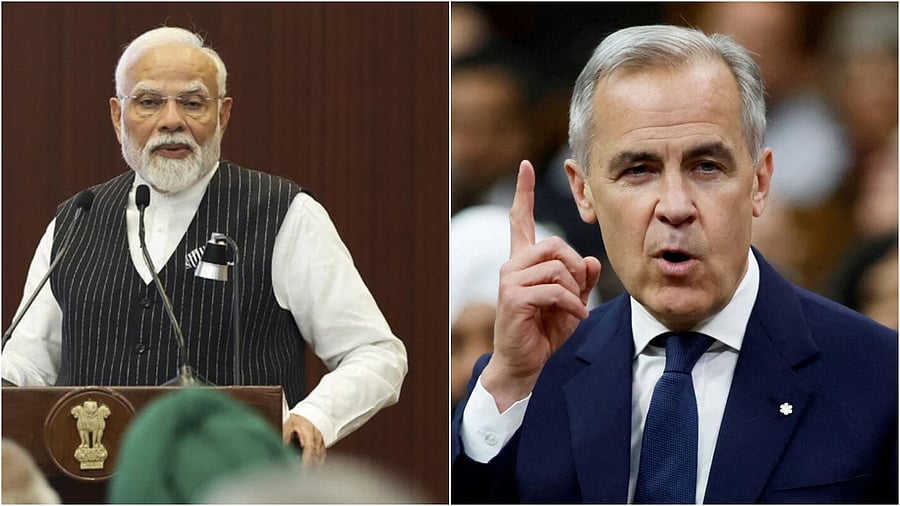
India's Prime Minister Narendra Modi (L); Canadian PM Mark Carney.
Credit: PTI, Reuters File Photos
By Sudhi Ranjan Sen and Laura Dhillon Kane
Indian Prime Minister Narendra Modi is not expected to attend the Canada-hosted Group of Seven summit, a first in six years and a sign of frosty ties between the two nations.
The leader has not received an invitation to the summit being held from June 15 to 17, officials in New Delhi said, asking not to be named as the discussions are private. It is the host nation’s prerogative to invite non-members, the people said.
India’s External Affairs Ministry didn’t immediately respond to an email seeking comment. “I have no information at this point in time on this issue,” Randhir Jaiswal, the ministry’s spokesperson, told reporters on May 22.
A spokesperson for Canadian Prime Minister Mark Carney said the country would confirm G-7 attendees “in due course.”
The South Asian country is not a member of the G-7, a grouping of seven of the world’s richest countries, comprising the US, UK, Germany, France, Italy, Canada and Japan. But India has been invited to join the summit every year since 2019.
Indian officials said Modi was unlikely to attend the summit even if invited, as it’s not yet clear how the newly elected Carney government will address India’s concerns about Sikh separatist groups operating in Canada.
Ties between the two countries remain frayed over the Modi government’s alleged involvement in homicides and extortion targeting Sikhs in Canada who advocate for carving out a separate homeland within India for followers of the faith.
The rift started in September 2023 when then-Prime Minister Justin Trudeau accused Indian officials of masterminding the assassination of prominent Sikh activist Hardeep Singh Nijjar, a Canadian citizen. The Indian government denied any involvement, calling the accusations absurd.
Canada’s Foreign Minister Anita Anand and India’s Subrahmanyam Jaishankar spoke on the phone last week, raising optimism about better ties.
Ottawa not extending an invite to India comes as the South Asian nation is expected to overtake Japan and become the fourth-largest economy by March next year, according to estimates by the International Monetary Fund, though it will still be among the world’s low per-capita economies.
The exclusion is likely to dent Modi’s image of a world leader of consequence among his followers. Opposition lawmakers described India being shut out of the summit as “yet another diplomatic bungle.”
Canada has invited other leaders of non-G-7 countries, including Ukrainian President Volodymyr Zelenskyy, Australian Prime Minister Anthony Albanese, and Mexican President Claudia Sheinbaum.
Global economic stability and growth, international peace, and the digital transition will top the summit agenda, according to Canada.